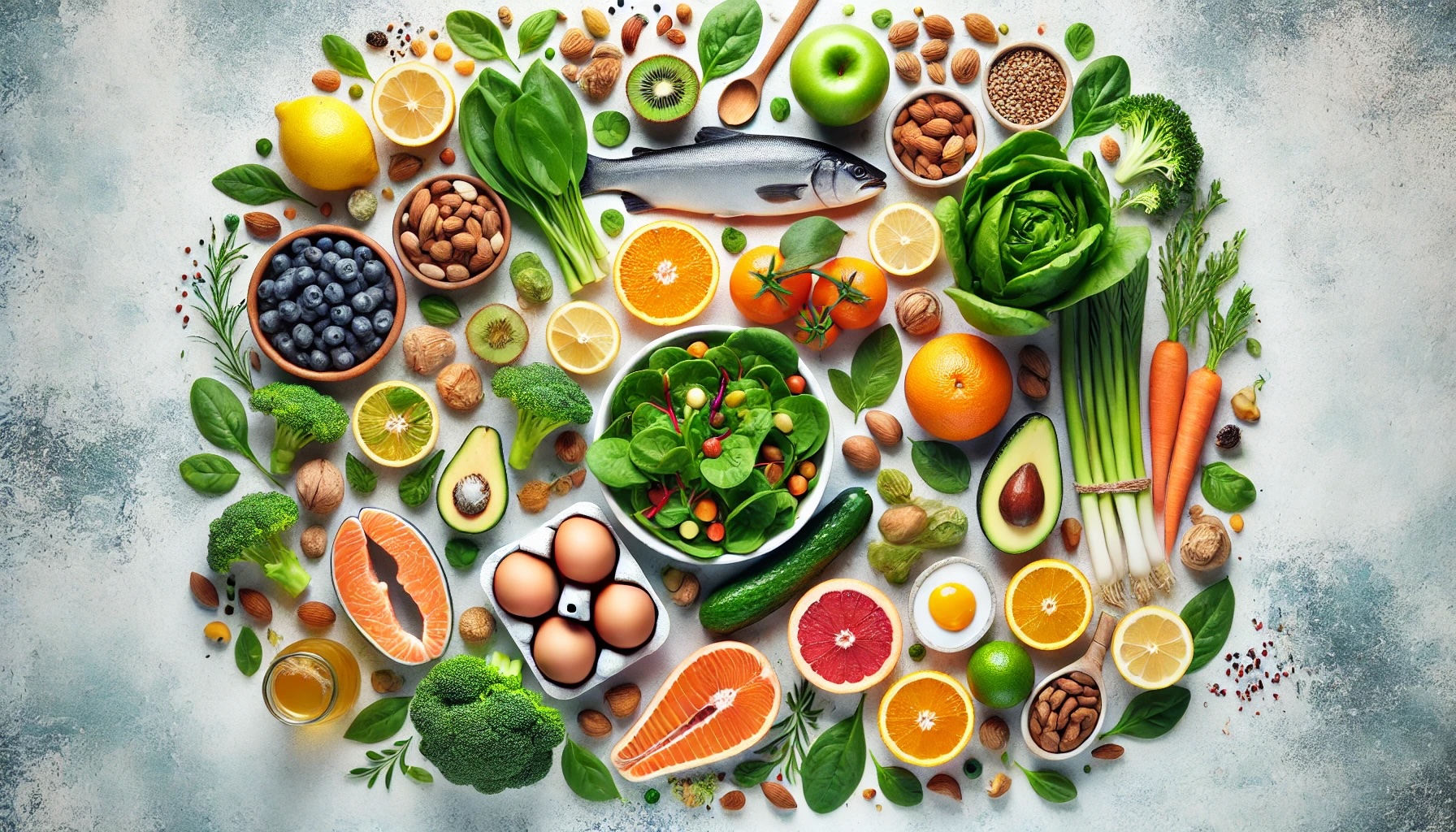Strengthening the immune system is key to maintaining overall health, and a balanced intake of essential nutrients plays a significant role in enhancing immune function. Especially during times when immunity may be compromised, incorporating natural vitamins can help the body fight off illnesses more effectively. In this article, we’ll introduce you to 10 vitamins that are essential for immune health, along with their natural sources, mechanisms of action, and usage tips to help you achieve your wellness goals.
1. Vitamin A: Protecting Your Body’s First Line of Defense
Vitamin A is essential for maintaining the health of epithelial tissues, which form protective barriers in the respiratory and digestive tracts to prevent pathogen entry. It also supports antibody production to enhance immune defense.
• Natural Sources:
Animal liver, such as chicken and pork liver, is an excellent source of vitamin A. Beta-carotene-rich vegetables like carrots, spinach, and pumpkins can also be converted into vitamin A in the body.
• Usage Tips:
Adults are advised to consume 700–900 micrograms of retinol activity equivalents (RAE) daily. As a fat-soluble vitamin, vitamin A is best absorbed when taken with dietary fats. However, excessive intake can lead to toxicity, so pregnant women should monitor their consumption carefully.
2. Vitamin B6: Supporting Immune Cell Function
Vitamin B6 is vital for the growth and function of lymphocytes (a type of white blood cell), helping regulate immune responses and maintaining healthy immune activity.
• Natural Sources:
Chicken, salmon, potatoes, bananas, and nuts are rich sources of vitamin B6.
• Usage Tips:
Adults should aim for 1.3–1.7 milligrams per day. Over-supplementation may cause nerve damage, so it’s essential to avoid high doses over extended periods.
3. Vitamin B12: Guardian of Immune and Nervous Systems
Vitamin B12 supports red blood cell production and ensures efficient oxygen delivery, indirectly enhancing immune function. It is also crucial for maintaining a healthy nervous system.
• Natural Sources:
Foods such as beef, fish, dairy products, and eggs are rich in vitamin B12. Vegetarians may need fortified foods or supplements to meet their needs.
• Usage Tips:
Adults require approximately 2.4 micrograms daily. Deficiency can lead to anemia and neurological issues, so it’s particularly important for older adults to monitor their intake.
4. Vitamin C: The Most Popular Immune Booster
Vitamin C enhances white blood cell function, helping the body combat viruses and bacteria. It is also a powerful antioxidant that reduces inflammation and oxidative stress in cells.
• Natural Sources:
Citrus fruits (like oranges and lemons), strawberries, bell peppers, tomatoes, and leafy greens are excellent sources of vitamin C.
• Usage Tips:
The recommended daily intake for adults is 75–90 milligrams. Since vitamin C is water-soluble and excess amounts are excreted in urine, it’s better to consume it in small, frequent doses rather than in a single large dose.
5. Vitamin D: The Immune Cell Regulator
Vitamin D plays a critical role in activating T-cells in the immune system. A deficiency in vitamin D can weaken the body’s ability to fight infections, increasing the risk of illnesses like the flu and colds.
• Natural Sources:
Cod liver oil, salmon, egg yolks, and fortified dairy products are rich in vitamin D. Sunlight exposure also enables the body to synthesize vitamin D naturally.
• Usage Tips:
Adults should aim for 600–800 international units (IU) per day. Those living in northern regions or with limited sun exposure may benefit from supplements.
6. Vitamin E: The Antioxidant Guardian
Vitamin E is a potent antioxidant that protects cell membranes from damage caused by free radicals while also supporting immune cell function.
• Natural Sources:
Nuts (such as almonds and hazelnuts), seeds (like sunflower seeds), vegetable oils, and leafy greens are excellent sources of vitamin E.
• Usage Tips:
Adults are recommended to consume 15 milligrams daily. Over-supplementation may interfere with blood clotting, so it’s important to stick to the recommended dosage.
7. Vitamin K: Linking Blood Health and Immunity
While vitamin K is primarily known for its role in blood clotting, it also supports bone health and plays a role in immune regulation.
• Natural Sources:
Leafy greens (such as spinach and kale), fermented foods, and fish are rich sources of vitamin K.
• Usage Tips:
Adults should consume 90–120 micrograms daily. Those taking anticoagulant medications should consult a doctor before using supplements.
8. Folic Acid (Vitamin B9): Fueling Cell Division
Folic acid is involved in DNA synthesis and cell division, which are vital for the production of immune cells. Deficiency may weaken the immune system and increase infection risks.
• Natural Sources:
Legumes, leafy greens, citrus fruits, and whole grains are rich in folic acid.
• Usage Tips:
Adults need approximately 400 micrograms daily. Pregnant women require additional intake to support fetal development.
9. Niacin (Vitamin B3): Supporting Metabolism and Immunity
Niacin is essential for energy metabolism, providing the power needed for immune cells to function effectively.
• Natural Sources:
Lean meats, fish, whole grains, and nuts are excellent sources of niacin.
• Usage Tips:
Adults should aim for 14–16 milligrams daily. High doses may cause side effects like skin flushing, so consult a doctor before taking supplements.
10. Pantothenic Acid (Vitamin B5): Aiding Antibody Production
Pantothenic acid is involved in the synthesis of antibodies and supports immune cell metabolism, ensuring the immune system operates smoothly.
• Natural Sources:
Mushrooms, avocados, egg yolks, and dairy products are rich in pantothenic acid.
• Usage Tips:
Adults require 5 milligrams daily. A balanced diet typically provides sufficient amounts, and deficiencies are rare.
Natural vitamins play a vital role in enhancing immune health, but their benefits, sources, and usage guidelines vary. Choosing the right supplements based on your health needs, along with a balanced diet rich in various vitamins, can help improve overall immunity. Before starting any supplementation, consult a healthcare professional to ensure safety and appropriateness for your individual health condition.
Your journey to better health starts with the right vitamins!




















